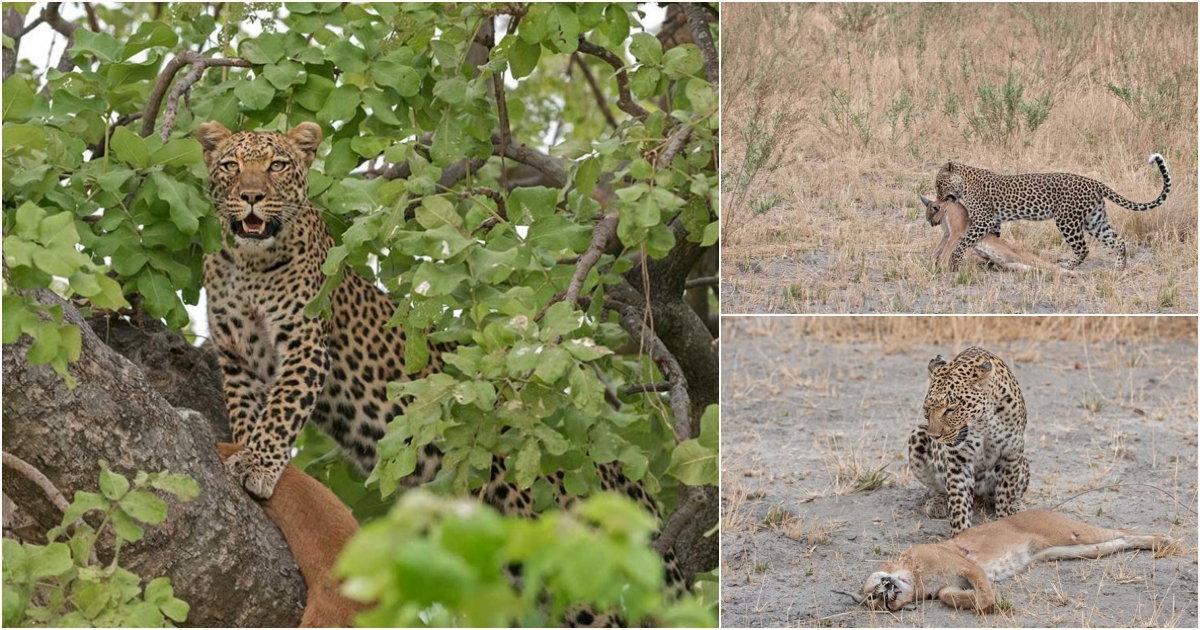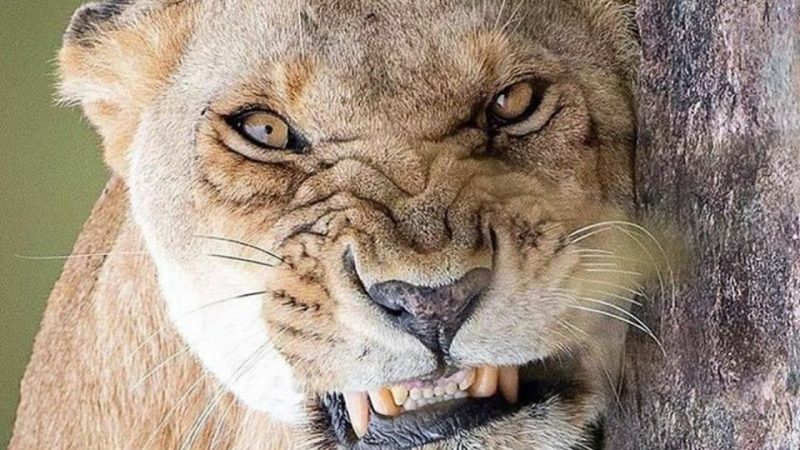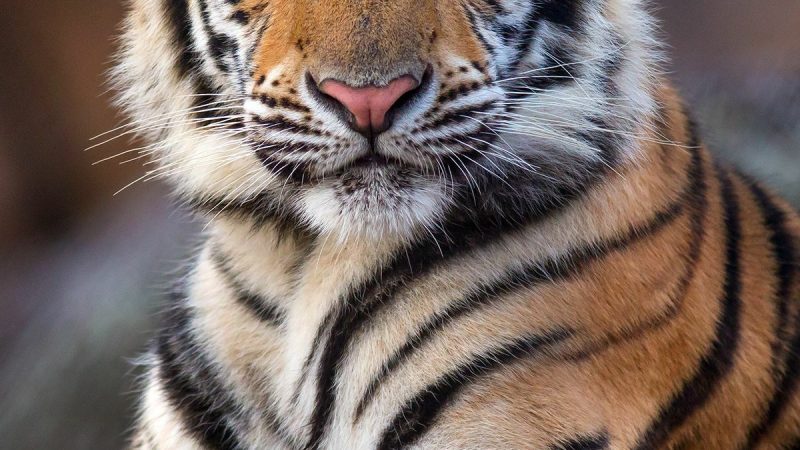
In the untamed landscapes of Botswana’s Selinda Game Reserve, wildlife photographer Dietmar Willuhn stumbled upon a gripping and somewhat unsettling scene: a leopard feasting on a smaller feline, a caracal, in November.


Willuhn was part of a guided safari when they encountered a leopard and her cub. As they observed this feline family, the scene took a dramatic turn when the mother leopard left her cub concealed in the shrubbery to embark on a hunting expedition of her own. The leopard, a skilled opportunist, had spotted potential prey in the form of a group of grazing impalas nearby.

Leopards are known for their adaptability and will hunt a wide range of animals, including creatures as large as rhinos or scavenging from bloated zebra carcasses. In this case, while the tour group anticipated witnessing an impala kill, the leopard had different plans.


Although it may seem surprising to witness a leopard stalking and killing a fellow feline, such encounters of cat-on-cat aggression are not uncommon in the wild. Apex predators like leopards occasionally engage in confrontations with rival species to eliminate competition for resources. Rarely will a wild carnivore pass up an easy meal, even if it means targeting a member of its own feline family.


In this specific scenario, the leopard likely stumbled upon the caracal by chance and seized the opportunity for a meal. Carnivore biologist Laurel E.K. Serieys, coordinator for the Urban Caracal Project in Cape Town, South Africa, explains that leopards are not specialized hunters; they are opportunistic predators. When they spot an opportunity for a meal and they’re hungry, they may pursue it.
While the encounter might be unsettling, it serves as a stark reminder of the raw and unforgiving nature of the animal kingdom, where survival often comes at the expense of others.



